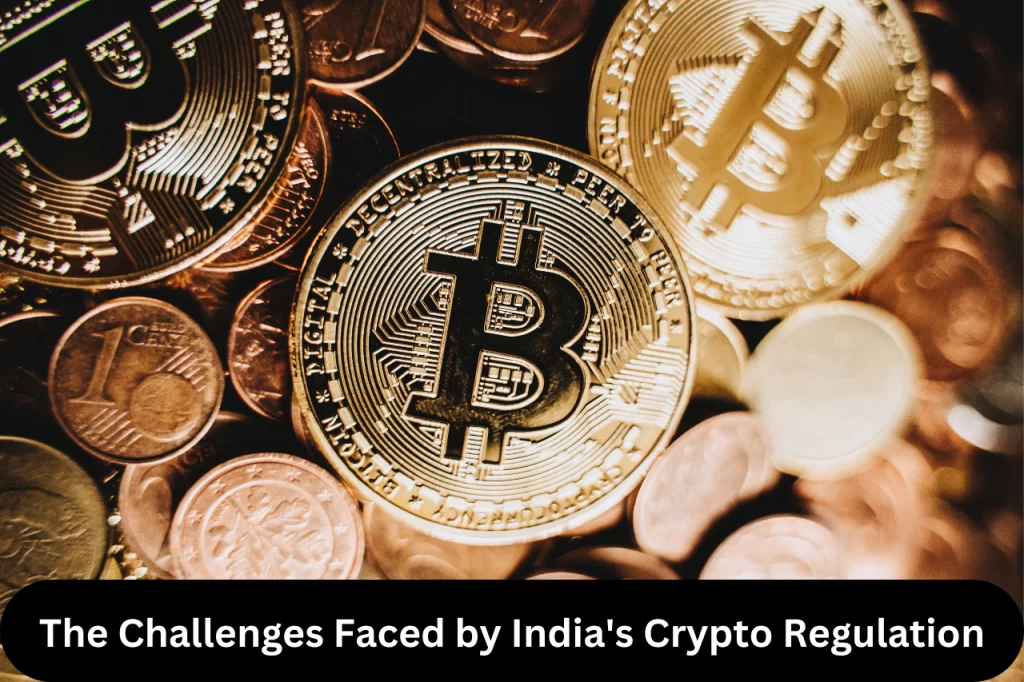Author : Nuzzu S.
Date : August 24, 2024
Introduction to Cryptocurrency in India
Cryptocurrency has emerged as a revolutionary financial technology [1] worldwide, and India is no exception. With a rapidly growing digital economy[2], India is seeing an increasing interest in cryptocurrencies. However, the journey has been anything but smooth, marked by fluctuating regulatory policies and a public still getting acquainted with this new form of currency.
Overview of Cryptocurrency
Cryptocurrencies are a form of digital or virtual currency[3] that rely on cryptographic techniques to ensure security. Unlike traditional currencies, they operate on decentralized[4] networks based on blockchain technology[5], ensuring transparency and reducing the risk of fraud. Bitcoin, the first cryptocurrency, paved the way for thousands of alternative coins (altcoins) like Ethereum, Ripple, and Litecoin, each with its own unique features and uses.
Cryptocurrency Adoption in India
The adoption of cryptocurrency in India has been on a steady rise, especially among tech-savvy millennials and the younger population. Factors like increasing internet penetration, mobile usage, and a curiosity about alternative investments have fueled this interest. Despite the regulatory uncertainties, Indians have shown a remarkable appetite for digital currencies, investing in them as both a speculative asset and a hedge against inflation.
Government Stance on Cryptocurrency
The Indian government’s stance on cryptocurrency has been ambivalent. While the Reserve Bank of India (RBI) initially imposed a banking ban on cryptocurrencies in 2018, the Supreme Court overturned this decision in 2020, leading to a resurgence of interest in the sector. However, the government has since hinted at introducing legislation that could either regulate or ban cryptocurrencies[1] altogether, creating a cloud of uncertainty over the market.
Key Cryptocurrency Market Trends in India
Rise of Bitcoin and Major Altcoins
Bitcoin remains the most popular cryptocurrency in India, but interest in altcoins like Ethereum, Ripple, and Binance[5] Coin has also surged. These cryptocurrencies are not just seen as investment vehicles but also as potential foundations for new technological applications, particularly in blockchain.

Popularity of Cryptocurrency Exchanges
Cryptocurrency exchanges[2] have proliferated in India, making it easier for people to buy, sell, and trade digital currencies. The ease of access provided by these platforms has contributed significantly to the growth of the market.
Top Cryptocurrency Exchanges in India
Some of the leading cryptocurrency exchanges in India include WazirX, CoinDCX, and ZebPay. These platforms offer a wide range of cryptocurrencies, user-friendly interfaces, and educational resources, attracting both novice and experienced investors.
Regulatory Developments
Regulation has been a major driver and barrier to the growth of cryptocurrency in India. The government’s cautious approach has created a volatile environment, but it has also spurred innovation and dialogue around the future of digital currencies in the country.
Impact of RBI’s Ban and Subsequent Lift
The RBI’s 2018 ban on cryptocurrencies was a significant setback for the industry, leading to the closure of several exchanges and a decline in trading volumes. However, the Supreme Court’s decision to lift the ban in 2020 revitalized the market, leading to a surge in interest and investment.
Recent Legislative Efforts
Recent efforts by the government to draft cryptocurrency legislation indicate that regulation is inevitable. The proposed Cryptocurrency and Regulation of Official Digital Currency Bill, 2021, aims to ban private cryptocurrencies while promoting the development of a state-backed digital currency. This dual approach reflects the government’s intent to harness blockchain technology while maintaining control over monetary policy.
Growth of Crypto Startups
The Indian cryptocurrency market has seen a boom in startups focused on blockchain technology, decentralized finance (DeFi), and related services. These startups are not only attracting local investors but are also catching the eye of international venture capitalists.

Fintech and Blockchain Integration
Many Indian fintech companies are integrating blockchain into their platforms, offering innovative solutions for banking, insurance, and supply chain management[3]. This trend is expected to continue as more businesses recognize the potential of blockchain to streamline operations and reduce costs.
Venture Capital Interest
Venture capital firms are increasingly investing in Indian crypto startups, recognizing the long-term potential of blockchain and digital currencies. This influx of capital is helping startups scale quickly, innovate, and compete on a global stage.
Digital Rupee and Its Implications
The concept of a Digital Rupee, a central bank digital currency[4] (CBDC) proposed by the RBI, is another major development in India’s cryptocurrency landscape. While still in the exploratory phase, the Digital Rupee could offer a state-backed alternative to private cryptocurrencies, potentially reshaping the financial ecosystem.
Role of Social Media in Cryptocurrency Awareness
Social media has played a crucial role in spreading awareness about cryptocurrencies in India. Platforms like Twitter, YouTube, and Telegram have become hubs for crypto enthusiasts to share knowledge, discuss trends, and influence public opinion.
Influencers and Crypto Education
Crypto influencers on platforms like YouTube and Twitter have become key figures in educating the Indian public about digital currencies. They provide insights, tutorials, and market analysis, making cryptocurrency more accessible to the average person.technology[5],
Community Engagement
Crypto communities on social media are vibrant and active, offering a space for both newbies and experts to discuss strategies, share news, and support each other in their investment journeys. These communities are instrumental in building trust and driving adoption in a relatively new and complex market.

Challenges Facing the Indian Cryptocurrency Market
Regulatory Uncertainty
One of the biggest challenges facing the Indian cryptocurrency market is regulatory uncertainty. The lack of clear guidelines has created confusion among investors and businesses, hindering the market’s growth potential. The fear of a potential ban also looms large, causing hesitation among potential investors.
Lack of Financial Literacy
Despite the growing interest in cryptocurrency, a significant portion of the Indian population still lacks basic financial literacy. This gap makes it difficult for many to understand the risks and benefits of investing in digital currencies, leading to uninformed decisions and potential losses.
Security Concerns
Security is a primary issue in the realm of cryptocurrency. Incidents of hacking, fraud, and scams have made many wary of investing in digital currencies. While exchanges and wallet providers are improving their security measures, the risk of cyber threats remains high.
Volatility and Market Speculation
Cryptocurrencies are known for their extreme price volatility, which can lead to significant gains but also substantial losses. This volatility, coupled with rampant market speculation, makes cryptocurrency a risky investment, particularly for those unfamiliar with the market dynamics.
Opportunities for Growth in India’s Cryptocurrency Market
Potential for Financial Inclusion
Cryptocurrency has the potential to promote financial inclusion in India, particularly in rural and underserved areas where traditional banking services are limited. Digital currencies can provide an alternative means of transaction and savings for those who lack access to conventional financial systems.
Blockchain Technology Advancements
India is poised to become a leader in blockchain technology, with several initiatives underway to explore its applications across various sectors. From supply chain management to healthcare, blockchain’s ability to provide transparency, security, and efficiency could revolutionize industries.
Government and Private Sector Collaboration
Collaboration between the government and private sector is crucial for the growth of the cryptocurrency market in India. By working together, they can create a regulatory framework that protects consumers while encouraging innovation and investment in the digital economy.
Growing Interest Among Young Investors
The growing interest in cryptocurrency among young Indians is a positive sign for the market’s future. As more millennials and Gen Z individuals enter the workforce and begin investing, their preference for digital assets is likely to drive the market’s growth.
Conclusion
The Future of Cryptocurrency in India
The future of cryptocurrency in India remains uncertain, but the potential for growth is undeniable. As the government moves towards regulation, the market will likely experience significant changes, with both challenges and opportunities arising. If regulated effectively, cryptocurrency could become a mainstream financial instrument in India, driving innovation and inclusion.
Final Thoughts
While the Indian cryptocurrency market is still in its nascent stages, it has shown remarkable resilience and adaptability. The coming years will be crucial in determining the role of digital currencies in India’s financial landscape. For investors, staying informed and cautious will be key to navigating this evolving market.
FAQs
Is cryptocurrency legal in India?
As of now, cryptocurrency is not illegal in India, but it is not fully regulated either. The government is working on legislation that could either regulate or restrict the use of cryptocurrencies.
What are the most popular cryptocurrencies in India?
Bitcoin, Ethereum, and Ripple are among the most popular cryptocurrencies in India. Other altcoins, like Binance Coin and Litecoin, are also gaining traction.
How do I start investing in cryptocurrency in India?
To start investing in cryptocurrency in India, you need to sign up with a reliable cryptocurrency exchange, complete the KYC process, and fund your account to begin trading.
What are the risks associated with cryptocurrency?
The main risks include market volatility, regulatory uncertainty, security concerns, and the potential for financial loss. It’s important to do thorough research before investing.
How does the digital rupee differ from other cryptocurrencies?
The Digital Rupee, proposed by the RBI, would be a central bank digital currency (CBDC) backed by the government, unlike private cryptocurrencies like Bitcoin. It would function as a digital version of the Indian rupee, with government backing and regulation.

